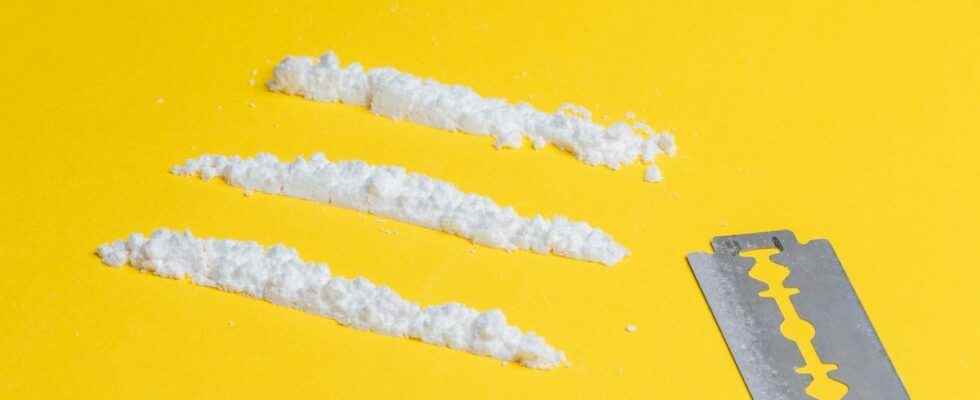Published on
Updated
Reading 2 mins.
Between 2020 and 2021, cocaine seizures have doubled in the country. How to explain this increase? And what care for patients? The answers of Pr Laurent Karila, addictologist.
Now widely available, cocaine has become the second most widely used illicit drug in France, behind cannabis. In 2021 alone, 26.5 tonnes of cocaine were seized on French territory, double that of 2020. Figures that worry the government, wishing to punish consumers more severely and in particular drivers who test positive.
A “stimulant” drug
Whether snorted, injected or smoked, cocaine causes the same effects: it acts on the reward circuit.
“Cocaine is a stimulant drug, it excites mentally and physically. We feel euphoric, powerful, above everything, with impaired judgment, reasoning, reaction time. There is biased attention, possible vision disturbances, poor decision making and loss of control“, says Professor Karila.
However, the more the cocaine intake is repeated, the more addiction sets in – even if it can appear from the first intake.
This addiction, characterized by an irresistible urge to use drugs again, can be identified using the memotechnical means of the “5Cs” applied over 12 months:
“The 5Cs include: a loss of VScontrol, use VScompulsiveness of drugs (you can’t stop yourself from…), an irrepressible urge to VSonsommer (craving), a use VScontinued cocaine, VSPhysical (cardiotoxic, neurotoxic, etc.), psychological (depression, acute delirium, suicide attempts, cognitive disorders, etc.) and social consequences“, details the expert, before adding “This memory technique is valid for all addictions“.
Cocaine addiction: what treatments to consider?
In case of cocaine addiction, care must be multidisciplinary.
“It is necessary to consider a multimodal care program involving medical monitoring (psychiatrist, addictologist), psychological, nurse, general practitioner, social worker, physical activity. It is necessary to combine symptomatic pharmacological treatments, psychotherapy (motivational interviews, cognitive and behavioral therapy, psychoanalysis, etc.), a neuropsychological evaluation in order to detect cognitive disorders and rehabilitate them, work on maintaining abstinence, use measures of reduction of risks and damages. You have to identify missteps and work on relapses“, advises the addictologist.
In case of acute poisoning, hospitalization of the patient is necessary. Medical complications (cardiological or vascular, respiratory, psychiatric, infectious disorders, etc.) are unfortunately not uncommon. They are even more and more frequent: they have been multiplied by 6 between 2010 and 2016 according to the government.
Cocaine-related accidents: the government cracks down
Since the accident caused by Pierre Palmade under the influence of cocaine, the Minister of the Interior has proposed a change in the law.
“I propose the withdrawal of the twelve points of the driving license for anyone who drives while using drugs“, declares Gérald Darmanin in an interview with the Sunday newspaperSunday, February 19.
He said he wanted to withdraw the license of people who drive “under drugs/alcohol because they are potential dangers“, without specifying a threshold on alcohol.
